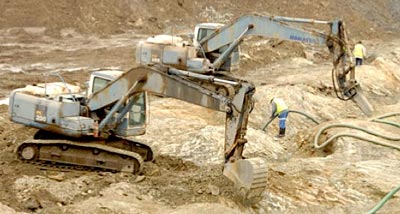
Russia’s nuclear industry supports Iran power plant
A Russian news agency said the country’s nuclear industry has seen rapid development throughout 2014, with multiple nuclear plants coming on stream, construction of new sites underway, and the signing of a number of ambitious contracts with foreign partners. Moreover, Russia’s state nuclear agency Rosatom has fulfilled its state defence contract obligations for 2014. The 2014 geopolitical situation has had a negative impact on the Russian nuclear industry. In Europe, Rosatom’s partners have faced pressure forcing them to abandon joint projects. However, some European countries showed that cooperation with Rosatom was in their long-term interests, and rose above political conflicts.
Returning to Iran
A landmark event for Rosatom was the Russian Iranian agreement signed in November in Moscow, which envisages the possible construction of eight Russian-designed units, four of them for the Bushehr nuclear power plant. Among the contracts signed, there were deals for further construction of the Hungarian Paks nuclear power plant, for a site at Ruppur in Bangladesh, for the first Jordanian power plant, and the third and fourth units of the Kudankulam Indian power plant. Moreover, India and Russia adopted a programme of long-term nuclear energy cooperation, with the construction of 12 power plant units in India over the next 20 years currently under consideration. A range of intergovernmental agreements drafted in 2014 have paved the way for the possible construction of power stations in Kazakhstan, South Africa, Algeria, Brazil and Argentina. Building a series of floating nuclear power plants in China became a new benchmark of Russian-Chinese nuclear cooperation. A respective memorandum for a partnership between the countries was agreed in September 2014.
Record foreign orders
For the first time ever, the total value of Rosatom’s foreign orders in 2014 exceeded US$100 billion, with a peak of US$100.3 billion. Rosatom’s orders in 2013 reached only US$74 billion. The number of 2014 orders received by the Russian nuclear agency rose from 20 to 27 for future energy units worldwide, including signed and guaranteed deals. According to industry experts, this positive dynamic confirms that Russia has a sizeable competitive advantage in terms of nuclear energy, despite unfavourable foreign policy events in 2014, including Western anti-Russian sanctions.
Finland became a good example of such a pragmatic approach. In December, the Finnish parliament gave the green light to the Hanhikivi 1 project, in which Rosatom holds a 34% share. Moreover, Finland became the first EU country to back a major joint investment project with Russia. The Russian-Hungarian contract to finish the construction of the Paks power plant showed that Hungary was also prepared to put its national interests first.
Source: Sputnik (http://sputniknews.com)












































